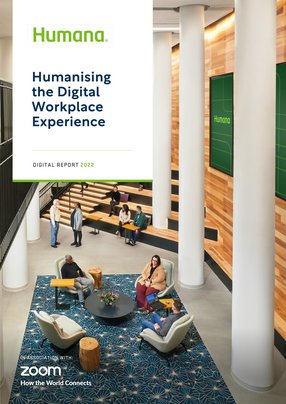Digital transformation has come to define corporate strategy. The promise that technology will bring new efficiencies, remove cost centres and open paths to new markets makes entering the digital ecosystem an appealing prospect for every growing business. Amid the disruption of a global pandemic, when even routine tasks for business continuity are not only impractical but, in many instances, impossible, what was a competitive advantage became a business imperative, and organisations invested billions to pivot almost overnight.
At Humana, digital transformation plays a different role in shaping the organisation’s future. It is a proactive tool to shape the human experiences of both employees and customers, and propel one of the United States’ largest health insurers into a new, post-pandemic era, built upon a foundation of digital investment stretching back nearly a decade.
“Forty-two percent of our employees already worked outside of Humana buildings with another four per cent being mobile,” says Callie Baumann, Humana’s Vice President of Digital Workplace Experience. “Before COVID, the digital workplace was part of our core operations; it was something we already had to be good at and have already been doing for years. Post-pandemic, it's become a thing that we do to drive business strategy.”
With more than 95,000 employees at the end of 2021 spread across a vast array of disciplines - from knowledge workers and supply chain specialists to frontline physicians, nurses, social workers, and retail pharmacy professionals - Humana is an organisation of prodigious scale, with revenues in 2021 exceeding US$83bn. In 2021, it acquired Kindred at Home, solidifying the foundation for an expanding business in clinical care and nearly doubling the size of its workforce. From the outside, Humana looks every bit the traditional Fortune 500 company. But, in many ways, it is also “the antithesis of enterprise-scale business”, according to Baumann. “It is an organisation where innovation, agility and reinvention are hardwired into its very DNA.”
Joining Humana’s Human Resources division in 2011, Baumann has since worked broadly across the organisation, launching new products, building innovation accelerators, and gaining years of first-hand insight into how technology can drive business strategy. “Most recently, just in time for COVID, I began leading our digital workplace experience team,” she says. “It’s been a wild two and a half years.”
Her impetus has always been to leverage digital processes, tools and techniques not for technology’s sake, but to create a healthier life for Humana’s employees and customers. It is a mission that aligns with Humana’s ambitious expansion beyond commercial insurance products - a core business that remains vital to the organisation’s success - and towards a singular focus to help people achieve lifelong well-being.
“Over the past several years, we’ve really crystallised this notion of defining and building a business model around health and delivering human care,” says Baumann. “We've been investing to make that a reality, and now we're just starting to see the glimpses of the transformative power that can have on the industry as a whole.”
That investment is more than just a financial conversation, Baumann says. “This isn't about the dollars and cents that we're investing in our SaaS partners. It is less about technology and more about the impact of those investments on engagement and well-being. We can see that employees using our tools have higher Net Promoter Score (NPS) with our customers, so we know there's value in helping people use our tools. We also know that they have higher satisfaction and less burnout.”
Baumann calls it the “Digital Workplace Experience” - the next evolution of digital integration in the workplace that affects every facet of the organisation. Baumann is a proponent of pushing the notion of a digital workplace forward, and that means moving away from the traditional technology mindset. It is an experience that embraces the often forgotten, but very real, personal journeys we all experience throughout our professional lives, from onboarding and career progression, to being equipped, enabled and empowered day-to-day, all the way to discovering an individual sense of purpose, pride and fulfilment.
“The conversation now is around leadership, culture change, and using this digital workplace experience platform that we've created to not just incrementally evolve, but to actually reimagine what we want Humana to be as an organisation, both as an employer and as a care company, post-pandemic,” she says.
Though still in the early stages, the digital workplace experience is already helping to shape the company’s expansions, the latest of which is a move into clinical care for seniors, called CenterWell (Home Health & Primary Care). Supporting this new area of business requires a completely new approach to meet unique employee needs, preferences and desires.
“Taking just one instance, we’re currently re-evaluating our Service Level Agreements (SLAs). What we instantly found was that the things that attract and retain a knowledge worker - such as myself - and a physician are completely different,” Baumann says. “Our current SLAs for downtime are in hours and days, while their expectations are in minutes. And, frankly, our patients deserve a relationship with their clinician whose delivery of human care is amplified by the technology they use. If my laptop goes down, that is an inconvenience and a disruption to my productivity. But for a clinician who sees a patient every 20-30 minutes, who is delivering care, that is broken trust.”
It goes both ways: clinical automation may be the top digital priority for clinicians, but for knowledge workers, seamless access to documents and robust communication tools top the agenda. “That’s why we're designing a model that's based on the true needs of our people, and intimately understanding the reality of their work and requirements,” Baumann says. “And that starts at day one, from rethinking the unboxing and onboarding experience, all the way down to the everyday, productive, ‘I am working’ experience.”
A spirit of true collaboration has been central to the evolution of the digital workplace experience, and that extends to external partnerships. “Partner-powered” is how one of Baumann’s colleagues characterises the approach.
“I think, particularly in big organisations that can wield a lot of power in these arrangements, there is a tendency to take a ‘you are serving me’ mentality. But even though they sit outside of our organisation, we think about our partners as a relationship, and that means it's give and take,” says Baumann. “It should be really uncomfortable at times, because they should be pushing you to do more and to think differently.”
Leading up to, but especially once the pandemic hit, video was integral in retaining and opening new lines of communication between Humana’s departments, employees and customers - including a major project to update capabilities across the organisation’s 340-strong conference room footprint.
“We needed some help to rethink the technology in those spaces,” says Baumann. “Our existing systems lacked the flexibility to support our new ways of working, and we wanted to be able to leverage the benefits of face-to-face interactions when in-person meetings were not possible or in hybrid environments. The Zoom team took the time to understand exactly who Humana is - the same way we are doing with our employees - and then applied their subject matter expertise in a way that's relevant.”
Beyond onboarding contemporary technology for new ways of working, the team is seeking to shape and influence “not just the digital workplace vision, but our digital workplace experience vision,” Baumann says, taking a view of the holistic experience ecosystem versus a time when Humana was a more fragmented, technology-focused operation.
“Engineering was in one silo, product management in another, and HR was elsewhere,” Baumann says. "The team’s work, with support from Gartner, helped us understand that there is a more holistic and comprehensive way to approach the digital workplace at Humana. We now have a language and a taxonomy to talk about these things. More importantly, perhaps, we now have a way to measure and communicate the value of what we do, beyond just the technology side of things, and therefore a position at the management table in terms of shaping where we go as an organisation, and how we go about getting there.”
To get there, Baumann will be leveraging all the opportunities of a workforce that is in the process of re-imagining what true hybrid work, built on the principle of experience equality means, now that the peak of the pandemic is beginning to subside.
“As our employees go back into the office, we will be flooded with data again about what works and what doesn't work,” she says. “It takes a tremendous amount of commitment from the organisation to continually reevaluate and rethink. It’s a commitment to data-driven innovation and a willingness to test and learn, stemming from the belief that these aren't just technology tools for technology's sake. They are mechanisms by which we will attract and retain talent; we will have better relationships with our members and the customers that we serve, because it's easier, frankly, for our employees to do their job every day.”
Baumann’s team will be moving beyond leveraging data as a means to educate employees on processes, or for procurement to reevaluate redundant technology, and instead look at the shape of people’s networks: who they communicate with, how they work together, and what their relationships actually say about how their roles intersect within the enterprise. After all, Humana’s strategy of delivering human care via an integrated, value based health ecosystem requires a company, and the people inside it, to be integrated.
“We might strategise for something to happen, but we need to see if it’s happening in reality,” Baumann says. “Are we actually seeing someone from the actuary team connecting with someone on the clinical care team, for example? Using that data, we can start conversations with leaders across the enterprise around fostering that connection and collaboration. We've been talking a lot about these principles of providing autonomy, choice and flexibility at work, and now we actually have the data to see if we're doing that. It also tells us how our technology helps us, as a company, to live up to the values and commitments that we're making for our associates.”
It comes down to accountability, and using data in a way that focuses less upon traditional digital concerns and more on attitudinal realities. In an era where major tech corporations have made many users uneasy about sharing data, it’s important to “tie action to intent in words and commitments that enhance their experience”, Baumann says.
With the acquisition of Kindred at Home, Humana is entering a period of rapid growth and change. Though the scale will bring its own set of challenges, it will also bring “myriad opportunities to improve the digital workplace experience and forge a brighter and healthier future for every Humana stakeholder,” Baumann says.
“The next horizon for the organisation is to really tightly and concretely understand the interplay between these digital workplace experiences, and how that connects to empower the customer experience,” she says. “Very soon, we will be at a place where we understand how the work that this team does powers a different relationship with the customers, from how we show up in sales interactions on Medicare, to how we show up on the phone when our members have questions, or in clinical settings when we're coordinating care. That’s a very exciting future.”
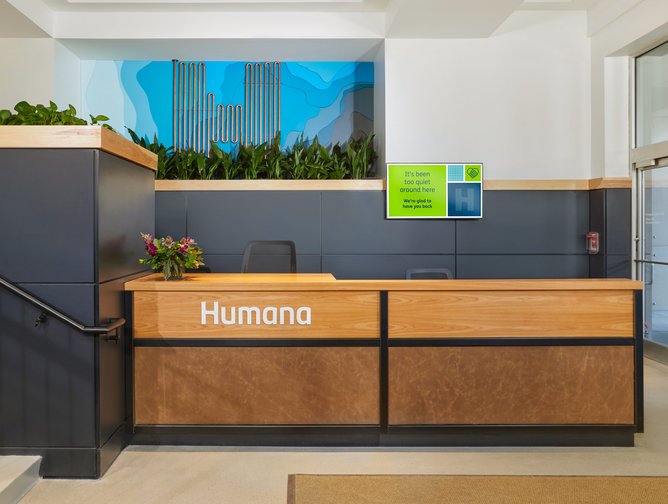
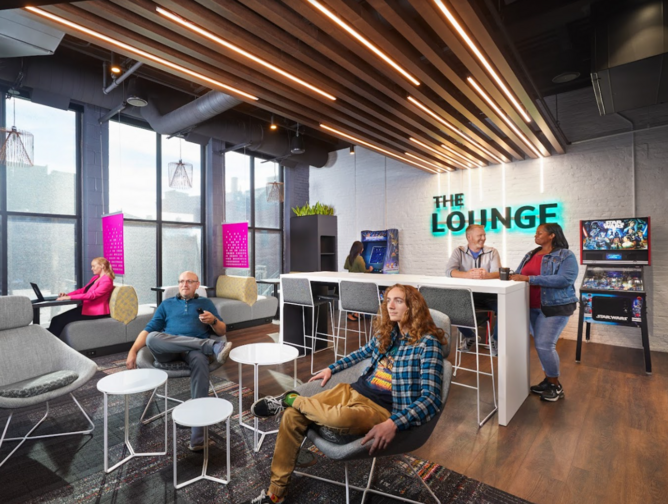
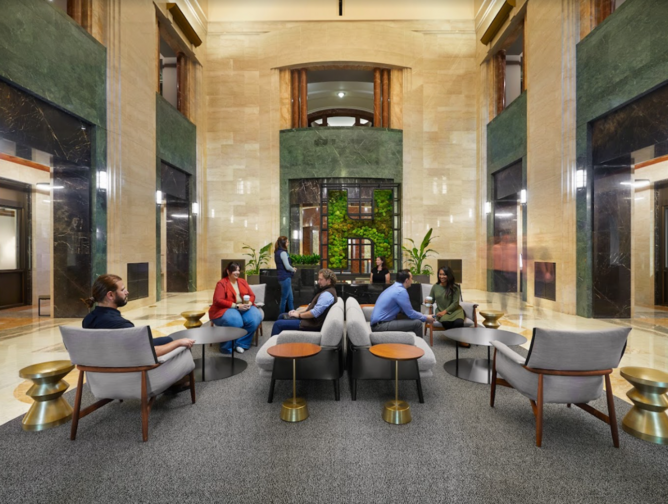
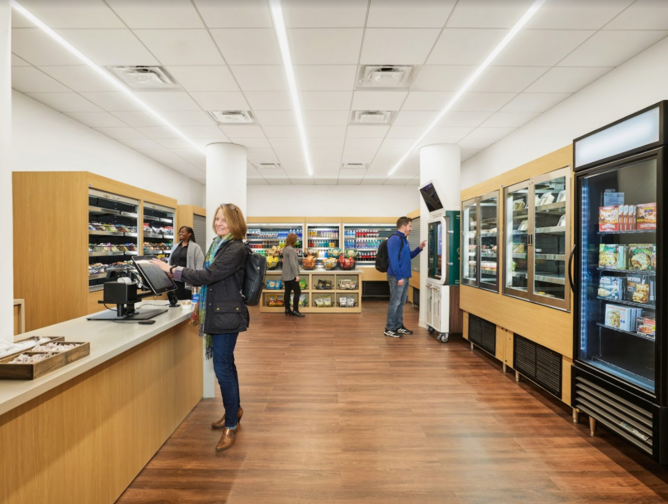
- PointClickCare. A healthcare technology companyDigital Transformation
- Brain interface could give paralysed patients a second actEnterprise IT
- New York Academy of Sciences and Tata prize Indian tech workDigital Transformation
- ICYMI, September 2022: Data poisoning and risky shadow ITEnterprise IT

